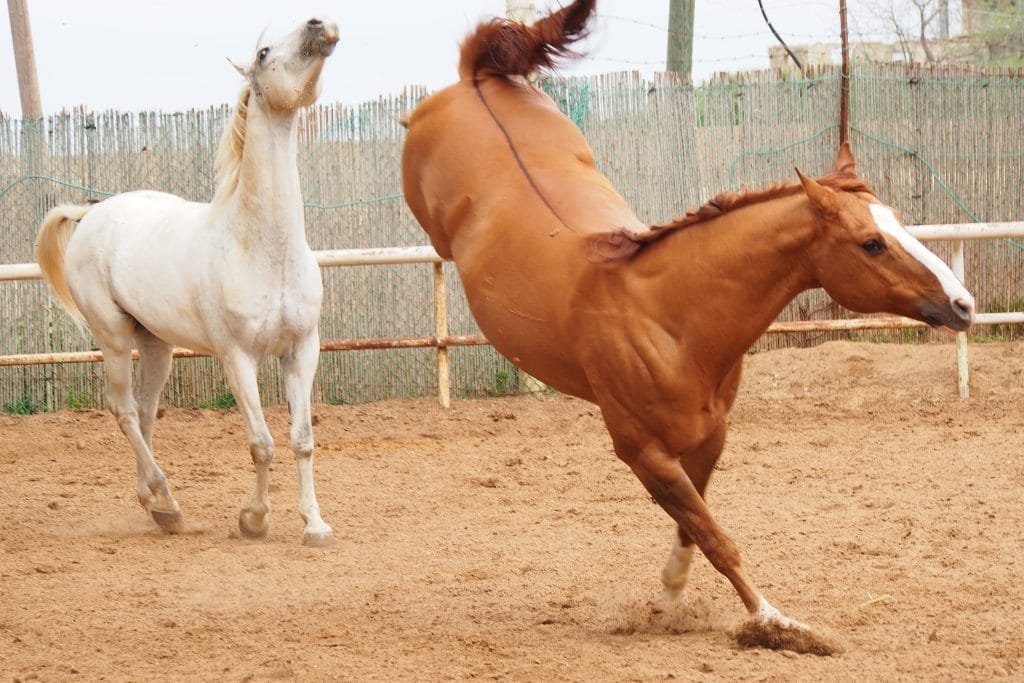Horses are generally known for their gentle and graceful demeanor
These sudden attacks can be startling and even dangerous, especially if you’re not prepared. Understanding why these events occur and how to handle them is crucial for anyone who interacts with horses.
What Causes a Horse to Attack?
Horses, like all animals, have their own ways of communicating distress or discomfort. A horse might suddenly attack due to a variety of reasons:
- Fear or Anxiety: Horses are prey animals, meaning their first response to danger is often to flee. However, if they feel cornered or trapped, they might react aggressively to protect themselves. Sudden loud noises, unfamiliar objects, or new surroundings can trigger this fear.
- Pain or Discomfort: If a horse is in pain, whether from an injury or an illness, it might lash out. Horses can’t tell us when they’re hurting, so they sometimes show their discomfort through aggression.
- Territorial Behavior: Horses have strong instincts about their personal space. If they feel that their territory is being threatened, they might react defensively. This is particularly common in stallions, who can be very protective of their space.
- Improper Handling: Horses that are not handled properly might become aggressive. Poor training, lack of socialization, or inconsistent behavior from handlers can lead to unpredictable responses.
Recognizing Warning Signs

Before a horse attacks, there are often warning signs that can help you avoid a confrontation. Understanding these signals can make a big difference:
- Ear Position: A horse’s ears can give you clues about its mood. If the ears are pinned back against the head, the horse might be feeling aggressive or irritated.
- Tail Movement: A rapidly swishing tail can indicate agitation or frustration.
- Body Language: An aggressive stance, such as a horse making itself look larger by arching its neck or raising its head, can signal that it’s feeling threatened or ready to attack.
- Vocalizations: Horses might snort, whinny, or even make grunting noises when they’re upset or preparing to charge.
What to Do if a Horse Attacks
If you find yourself facing an aggressive horse, your immediate response is crucial:
- Stay Calm: Panicking can escalate the situation. Try to remain calm and composed.
- Create Space: Back away slowly to give the horse more room. Do not turn your back on the horse, as this might provoke it further.
- Use a Barrier: If possible, place an object like a fence or gate between you and the horse to protect yourself.
- Seek Help: If you’re in a situation where a horse is behaving aggressively, it’s important to get assistance from someone experienced with handling horses.
Prevention is Key
The best way to handle sudden horse attacks is to prevent them from happening in the first place. Here are some tips for keeping interactions with horses safe:
- Proper Training: Ensure that horses are well-trained and socialized from an early age. This helps them become accustomed to various situations and reduces the likelihood of aggressive behavior.
- Respect Boundaries: Always approach horses calmly and respectfully. Avoid sudden movements or loud noises that could startle them.
- Regular Check-Ups: Keep an eye on your horse’s health. Regular veterinary check-ups can help identify and address any issues before they lead to aggressive behavior.
- Educate Yourself: Learn about horse behavior and body language. The more you understand how horses communicate, the better you’ll be at preventing and managing potential aggression.
While a sudden horse attack is rare, understanding the underlying causes and recognizing warning signs can help you stay safe. By being prepared and knowledgeable, you can minimize the risk of aggression and enjoy a positive relationship with these magnificent animals. Remember, horses are sensitive creatures that respond to their environment and interactions. With proper care and attention, you can help ensure that your time with them is both enjoyable and saf




